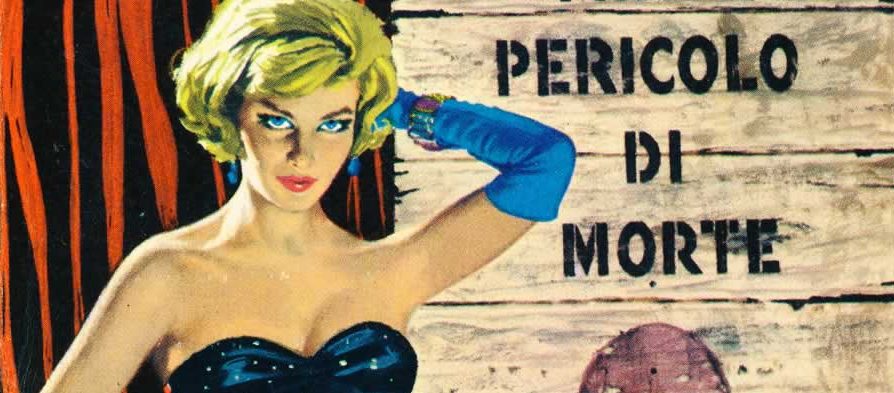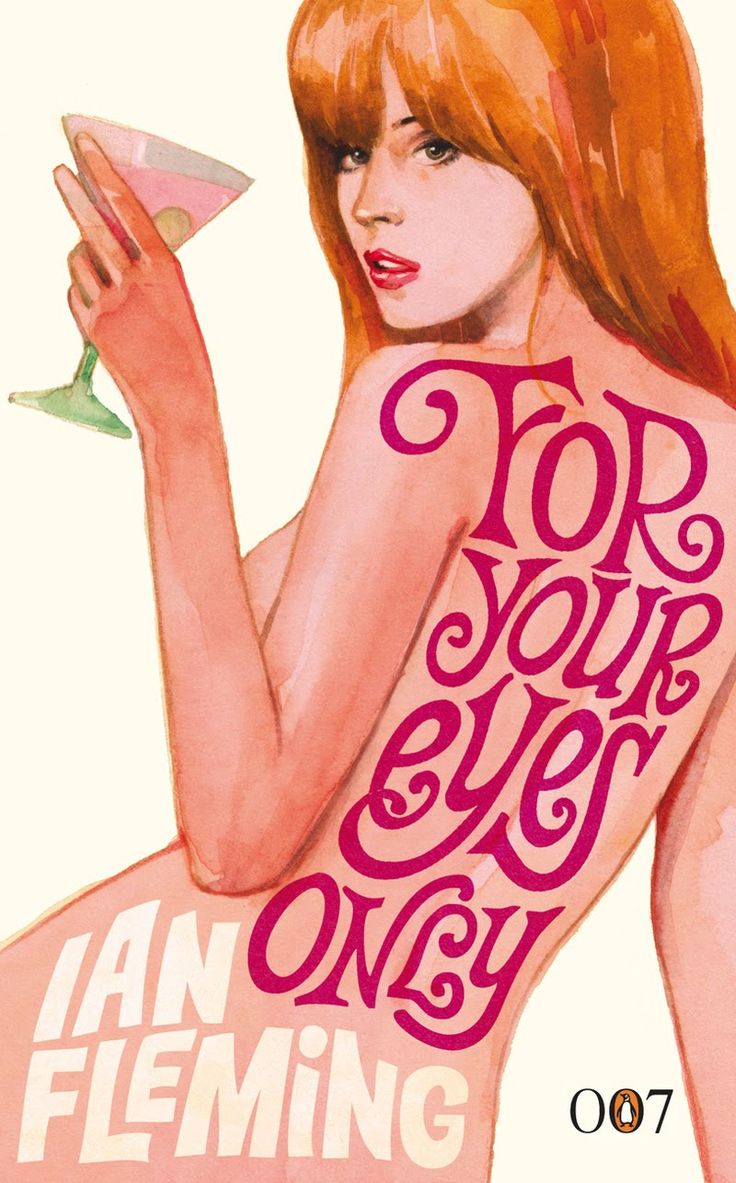

“Never send a man where you can send a bullet.”
Unlike the previous seven Bond novels, Ian Fleming’s For Your Eyes Only is not a single narrative arc, but rather a collection of five unrelated short stories culled from drafts for an abandoned television series. They vary in quality and form. Some of them offer the excitement of a standard Bond outing without the fluff of card games and the like, while others try out new forms of storytelling for Fleming. The author’s personal innovations are surprisingly successful, and his writing comes off as a bit more considered, literary, and sophisticated than the typical Bond fare. But make no mistake—these stories are not an unrecognizable departure from what he had been writing before. Our main character is still Bond the womanizer, Bond the connoisseur, Bond the cool-headed spy. But he’s a bit more three dimensional than he has been. He had doubted himself before, but now it is a regular occurrence. Is he doing the right thing? Who decides what is right? Most of the stories work very well as they get in and out before the details become too familiar and the fresh storytelling methods give the character just enough of a wrinkle to remain interesting.
The first story, “From a View to a Kill” details Bond’s investigation of a murdered dispatch rider who was carrying classified documents. It is a fairly typical Bond adventure-in-miniature, as his instincts and intuition guide him to uncover things others could not see. It’s a minor mission; no world domination, no kidnapping, very few theatrics. Of course there’s a girl, too. A nice change of pace from the high stakes encounters of the past few novels.
“For Your Eyes Only” begins with an interesting setup—a wealthy family murdered because they are unwilling to sell their large estate. The first chapter is told from the couple’s point of view. It opens with a neat detail about a series of doctor hummingbirds that the couple have named, keeping the monikers for the birds even when old ones die and new ones take their places. But soon they are pressed for the sale of their property by several hitmen, and gunned down when they refuse.
The catch is that they are personal friends of M. He brings Bond into his office and asks for his opinion on the matter. This opens up some interesting thoughts for Bond, who had always worked on the assumption that the instructions passed down to him were just. If he was ordered to kill someone, they deserved to die. But what if M could be wrong? “Off the record,” Bond is sent to seek out the murderous villain’s vacation retreat and eliminate him. After Bond stealthily crawls hundreds of yards to the cabin unnoticed, he finds an arrow pointed at his face. Like Tilly Masterson in Goldfinger, the daughter of the murdered couple has taken the matter of revenge into her own hands. She refuses to let Bond handle the situation, and so they cooperate (and, of course, fall briefly in love).
“Quantum of Solace” is really not a James Bond story at all, but rather one told to him. It borrows its style from a short story by Somerset Maugham, of whom Fleming was a great admirer. After a mission, Bond attends a dinner party hosted by the Governor of the Bahamas. After the dinner, he expects to be bored, and begins saying things to get a rise out of people. He remarks that if he were ever to marry, it would be to an air hostess, so that she would always be ready and willing to take care of his every need. The Governor, who Bond suspects will put him to sleep if they engage in conversation, launches into a story about a man he knew who had married an air hostess.
The story the Governor tells is decent—how his friend, a socially awkward but capable man, had been swept off his feet by the hostess on his flight and they were married within a month. They were happy for a time, and socially prominent. But then she began cheating on him with blatant disregard for the social consequences. Eventually the young man she was seeing grew tired of her and she tried to return to her husband; but he had his mind set on a sustained revenge.
The tale affects Bond unexpectedly, as he considers that his glamorous life has very little personal meaning. “Quantum of Solace” stands out from the rest of the stories for its narrative style as well as its introspection. Bond occasionally interjects during the story’s telling, but for the most part it is completely disconnected from the world of 007.
I think it’s the same with all relationships between a man and a woman. They can survive anything so long as some kind of basic humanity exists between the two people. When all kindness has gone, when one person obviously and sincerely doesn’t care if the other is alive or dead, then it’s just no good. That particular insult to the ego—worse, to the instinct of self-preservation—can never be forgiven. I’ve noticed this in hundreds of marriages. I’ve seen flagrant infidelities patched up, I’ve seen crimes and even murder forgiven by the other party, let alone bankruptcy and every other form of social crime. Incurable disease, blindness, disaster—all these can be overcome. But never the death of common humanity in one of the partners. I’ve thought about this and I’ve invented a rather high-sounding title for this basic factor in human relations. I have called it the Law of the Quantum of Solace.
“Risico” is the most exciting story of the bunch and the one most similar to a standard Bond tale. In it, Bond meets with a CIA informant who sets him on the trail of a smuggler, requesting that the smuggler be eliminated. But the smuggler has their conversation recorded and captures Bond. In a nice twist, the villain actually turns out to stand on the moral high ground, and he and Bond take down the informant who had been playing both sides of the game.
There was a whiff of adolescent rascality in the air which somehow changed the colour of the crime from black to white—or at least to grey.
“The Hildebrand Rarity” is another experiment for Fleming, as Bond gets talked into hunting for a rare fish. The owner of the fishing boat is a despicable man who abuses those around him and is nasty to his wife. When they finally catch the fish—by poisoning the water—the man gets drunk in celebration. Later that night, Bond finds him choked to death with the rare fish shoved down his throat. He doesn’t know who has done it, but believes the man’s death was justified and helps make the scene look like an accident.
These measured stories are certainly of a different tone than the excessive theatrics that have characterized the full-fledged novels. Bond’s still Bond, there’s still plenty of girls, cigars, alcohol, cars, etc. but the tamer, more grounded stories really suit the character well. It’s interesting to see Fleming somewhat undermining the superhero persona he had built up around Bond and having fun doing it. Toes are dipped into questions of justice and revenge and Bond becomes an observer rather than a doer of action for two of the stories. A very good outing for Mr. Fleming and his alter ego.